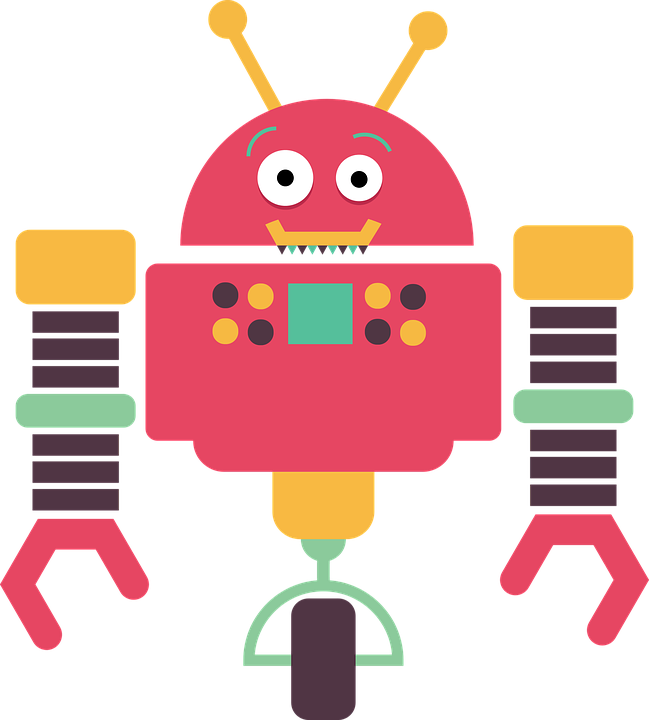Would you have sex with a robot? It may sound farfetched and Black Mirror-ish but this is a trend which is steadily on the rise. But the concept of using tech for sexual gratification isn’t new. From virtual reality porn to vibrating dildos, sex tech is very integrated into 21st century western world and has been estimated to be worth $30bn (€25m).
Unlike sex toys and dolls, which are typically hidden in underwear draws and handed over in discreet packaging upon purchase, sexbots may become mainstream. Speaking at the International Congress of Love and Sex with Robotics, Dr Barber predicted that the use of artificial intelligence devices in the bedroom will be socially normal within 25 years. When looking at how much tech has integrated itself into our lives over the few decades, this prediction doesn’t seem outrageous. “Digisexual” is now a term gaining popularity to describe someone who’s more attracted to technological forms of sexuality than other people.
In 2017, Matt McMullen created a sex doll called “Harmony” which has the capability of learning about the preferences, wants, and desires of the owner all for $15,000. ‘She’ can smile, blink and frown in a nearly humanlike fashion. She can hold a conversation with you, tell jokes, remember your food preferences, and the names of your siblings. During an interview McMullen demonstrated that the skin on Harmony’s face could be peeled off and replaced. He added a different wigs and changed her personality by using the app on his handheld device that controls the robot.
But with any piece of new technology comes an array of ethical questions surrounding what it will mean for humanity as a whole. For example:
Is abusing a sex robot ok? Is it acceptable to rape or ‘kill’ a sex robot? Does its simulated appearance have any bearing on this? In fact, should robots have ‘rights’? After all, we seem to be discussing sex slaves here.
Feminist groups in Sweden have called for a ban on ‘dangerous’ sex robots because they encourage men to treat women’s bodies as objects and could lead to violence against real women and girls. This fear of dissociation seems to be closely (if not directly) related to ‘normalisation’ concerns in porn (people enacting what they see in real life). There are even sex doll ‘brothels’ in Europe, where customers spend around 100 euro for an hour with a robotic woman.
Is it acceptable to create child sex dolls? Will the creation of child sex dolls curb paedophilia or encourage it?
The Curbing Realistic Exploitative Electronic Pedophilic Robots Act, or CREEPER, was passed in America back in 2017 to put bans on child sex robots, but with child-sized silicone sex dolls already being made and shipped globally by firms in China and Japan, many are quereying whether child sex dolls should be allowed. A self-confessed paedophile, Shin Takagi, set up a company called Trottla that manufactures and markets child look-alike sex dolls “We should accept that there is no way to change someone’s fetishes. I am helping people express their desires, legally and ethically. It’s not worth living if you have to live with repressed desire.”

Would the creation of a sex doll to emulate a real person soon be socially acceptable? (Not to get all ‘Black Mirrior’-esque) but will it one day be ok to create a deceased partner? Perhaps an ex-partner … against their wishes? What about someone whose essential data has just been captured –without their knowledge. Could celebrities ‘sell’ themselves?
Experts in the field of robotics have revealed that the next logical step is for designers to create sex robots to look exactly like your favourite celebrities. If (when) this happens, we will likely be thrown into another GDPR type mission focusing on issues of consent and distribution.

Experts have claimed teenagers could soon be losing their virginity the mechanical love machines – with one warning that people could become addicted to the robotic romps.There have even been warnings that sex with robots could turn people into psychopaths. But is it all really that bad? With most new tech there is usually a bit of a moral panic. STDs and teenage pregnancies have been predicted to decline, and many have said it will help to battle loneliness amongst the elderly.
The important thing to remember is that tech is never wholly ‘good’ or ‘bad’, it is the use/intentions of the people which defines its ‘morality’. As with anything, law makers will most likely have to play ‘catch up’ as situations arise which question our relationship with sex dolls, and you will most likely have to decide whether you would be ok having one in your house, being used by a family member, or even being used for extramarital purposes.
@Cillahope_

